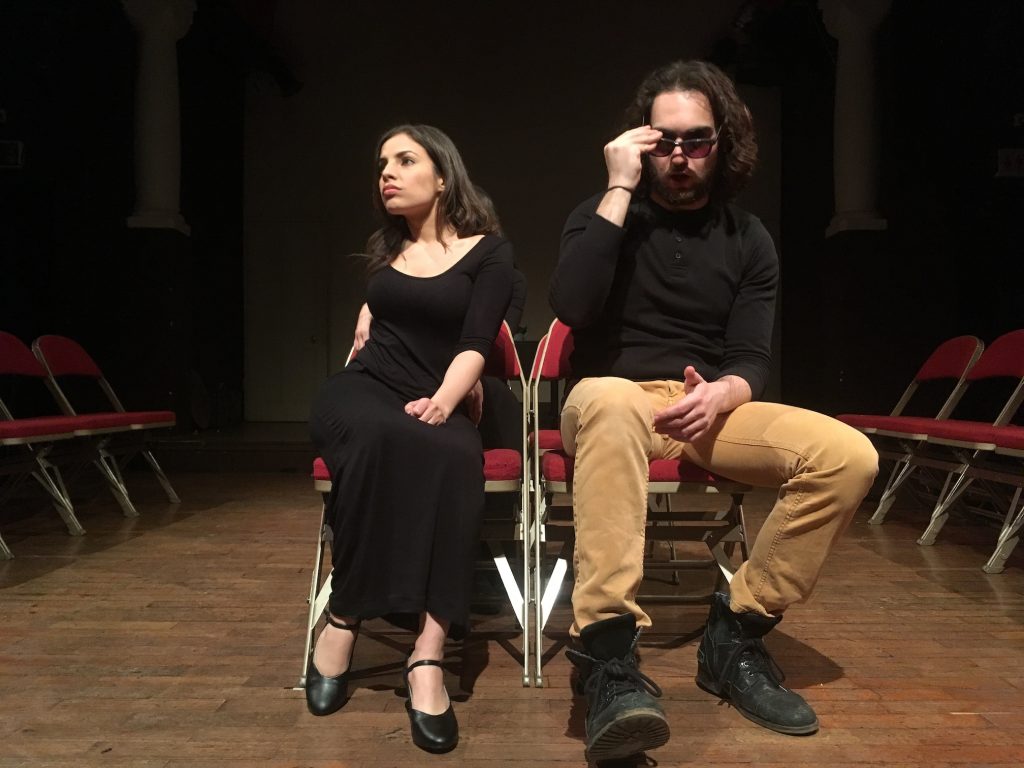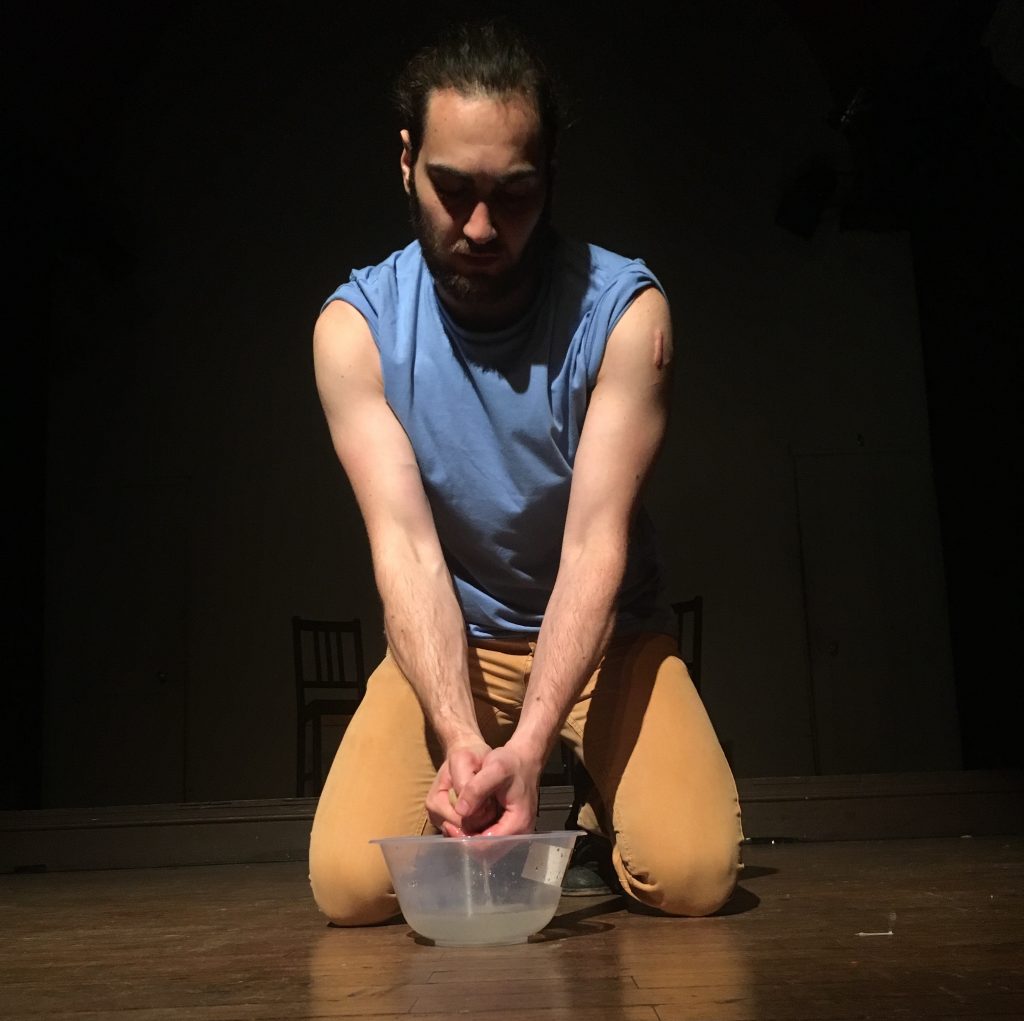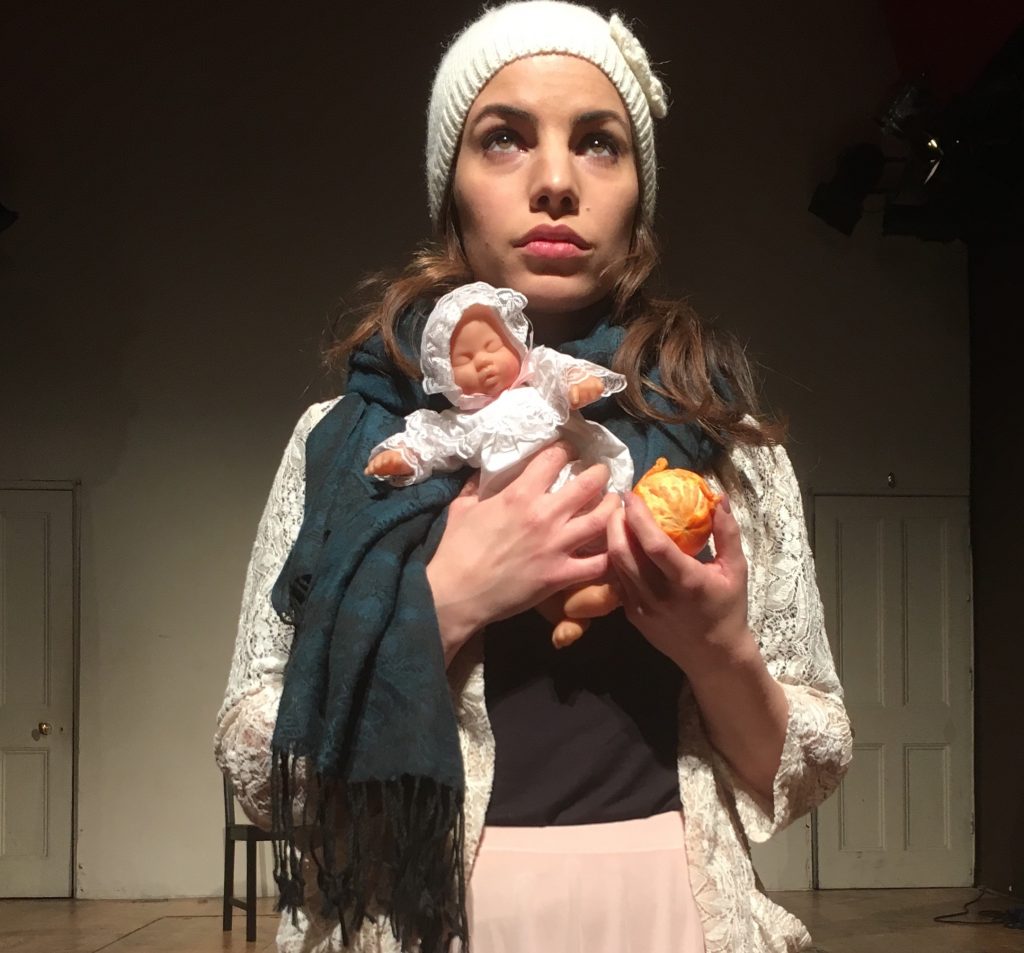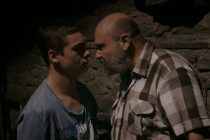Iran has much in common with neighbouring Turkey: a gloriously rich culture and civilisation, and a preoccupation with family, food and tradition. Both also share a murky history of persecuting political dissidents – one of the drivers behind their large diasporas. So I was already curious about how CITIZEN, a new play written and directed by Australian Iranian Sepy Baghaei, themed around immigration and identity, would appeal beyond its Iranian narrative.
I was a first-timer at The Space, a former church turned theatre on the Isle of Dogs in East London. This old, intimate venue was the perfect setting for the play, which starts with Nalân Burgess, one of the play’s three actors, coming through the same door the audience had.
For the next 90 minutes or so, the actors perform numerous roles in different parts of the room, the scenes as fluid as the characters they play. Lighting and simple props help transport us from one short story to the next, each dealing with a separate aspect of CITIZEN’s central theme. At the beginning, Nalân carries a tablet displaying the name ‘Malcolm Turnbull’, as she recites the Australian Prime Minister’s words on immigration. Later the engagement with audience is more direct, as we are served Iranian tea and dates.
We are given short snippets on the lives of Iranians at home and abroad. There is the student based in the USA who needs to cut her vacation in Iran short before Trump’s ban on travellers from Muslim states comes in. An Iranian woman who’d fled the Islamic Revolution believing her time abroad was temporary, yet having spent most of her life in America, she realises this is now her ‘home’ and being forced to make a choice between the two countries would be akin to cutting off one of her arms. I’ve used this very same analogy in debates with Greek Cypriots who ask me to make a choice between being ‘Turkish’ or ‘Cypriot’.
There is humour as we discover how to make ‘The Taste of Tehran’ in the form of a TV cookery programme, the ingredients the very essence of a proud Iranian. There’s a story from an immigrant who on moving to North America ends up exposing herself as a foreigner after asking a waitress what “white tea” is. Another funny scene involves a Cambridge-like don, played by David Djemal, who discretely observes the quirky traditions of Iranian hospitality, giving us a running commentary as the guest goes through the ritual of rejecting offers of food three times before finally indulging her host.

The light-hearted moments were vital in breaking up what is overall a very dark, hard-hitting political play about the mistreatment of our fellow humans in modern times. This was powerfully presented in the form of three real life stories that the actors revisited repeatedly during the course of the show.
The first concerns British Iranian mother-of-one Nazanin Zaghari-Ratcliffe, currently imprisoned in Iran. The second is about Behrouz Boochani, an Iranian Kurd incarcerated at Manus Island Detention Centre, off the coast of Australia. The third relates to an Iranian father (we learn from the programme notes it is Baghaei’s own father) and the discoveries his daughter makes after his death about the life experiences that shaped his views and behaviour, which she found so hard to understand and accept when he was alive.
The intimacy of the venue literally meant the actors could look you straight in the eye as they spoke. Their emotional monologues about their thoughts, feelings and experiences were deeply affecting.
A female actress (name unknown) playing Zaghari-Ratcliffe, offered her daughter an apology for not being there for her, after they were forced apart when the girl was aged just one. She laments how aged three, her daughter can now tell those asking about her mummy, that “she is in prison”. The actress’s anger is palpable as she notes how she and her husband have been denied the opportunity to see the formative moments of their daughter growing up. And amongst all this angst she tries to move beyond her understandable bitterness to retain the love of her native Iran, while showing contempt for the regime.
Djemal’s portrayal of Boochani was exceptional. It was hard to return his gaze as he spoke about the daily humiliations he and fellow inmates at the detention centre faced, from being a lack of food to overflowing toilets and beatings from the guards. He observed his own insanity and that of his fellow refugees as they try to hold on to memories, while they are denied their freedom and dignity simply because they sought a new life in a foreign country. As he addressed the audience with his solemn words, it was hard not to feel ashamed, that collectively we were all responsible.

Towards the end, Burgess plays out a story which has its roots in Cyprus not Iran – the oranges and resettlement in Hackney a clear giveaway for those of Turkish Cypriot heritage. She explains how as a young girl, one evening she is suddenly forced to get dressed in a nice outfit and say goodbye to her grandmother, as her parents pack for a journey. It turns out they are fleeing the country. She missed her grandfather by minutes, and they never get to see each other again.
The heartbreak is challenged by hope. Each of the actors appear around a washing line, hanging up photos of migrants and their aspirations. Burgess sings beautifully in Turkish Benim Memleketim [My Country], the song’s words a reminder that your original identity and memories of home will forever be with you.
There were times this single act play was a tad too frenetic, with too many elements to absorb. Yet from start to finish, it was compelling viewing. Baghaei’s insights into the world’s “placeless” told through the eyes of Iranians, is a universal tale. Immigrants are scorned by the countrymen they’ve left behind and rejected by those among whom they try to newly settle. At a time when we are supposedly moving towards a global society, CITIZEN raises deeply uncomfortable questions that will leave you questioning your humanity.





